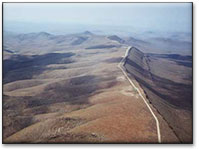|
Tinkering with scientific information, either striking it from reports or altering it, is becoming a pattern of behavior. It represents the politicizing of a scientific process, which at once manifests a disdain for professional scientists working for our government and a willingness to be less than candid with the American people.
— Roger G. Kennedy, former director of the National Park Service, responding to the doctoring of findings on Yellowstone National Park.1
Political partisans have long disagreed over each administration’s politics and policy. But there is little disagreement about the need for elected and appointed officials to have access to rigorous, objective scientific research and analysis, and to fully understand its implications for addressing the problems they are trying to solve. To be sure, politics plays an unavoidable and, at times, valuable role in policymaking because many factors in addition to science and technology must be weighed in decision making.
| |

Yucca Mountain, Nye County, Nevada.
|
To make policy choices, government officials must frequently balance the needs of one constituency against another. Consider, for instance, the policy quandary over nuclear waste from the nation’s nuclear power plants. Politics and science both play a crucial role as policy makers try to balance the risk to public health and the environment from the proposed spent fuel repository at Yucca Mountain in Nevada versus the long-term health risks to people living near one of the country’s numerous current nuclear spent fuel storage facilities. In health care, decision makers must weigh the funding of research on rare serious diseases against broad public health issues such as funding cholesterol screening or childhood vaccinations.
There is, however, a crucial difference between political fights over policy and the manipulation of the scientific underpinnings of the policymaking process itself. Distorting that process runs the risk that decision makers will not have access to the factual information needed to help them make informed decisions that affect human health, public safety, and the wellbeing of our communities.
The following section details the results of a UCS investigation into numerous allegations that the current administration has undermined the quality of the science that informs policy making by suppressing, distorting, or manipulating the work done by scientists at federal agencies.
1 As quoted in E. Shogren, “Administration, Yellowstone Staff at Odds On Park Threats,” Los Angeles Times, June 26, 2003.
< Previous Next >
|

